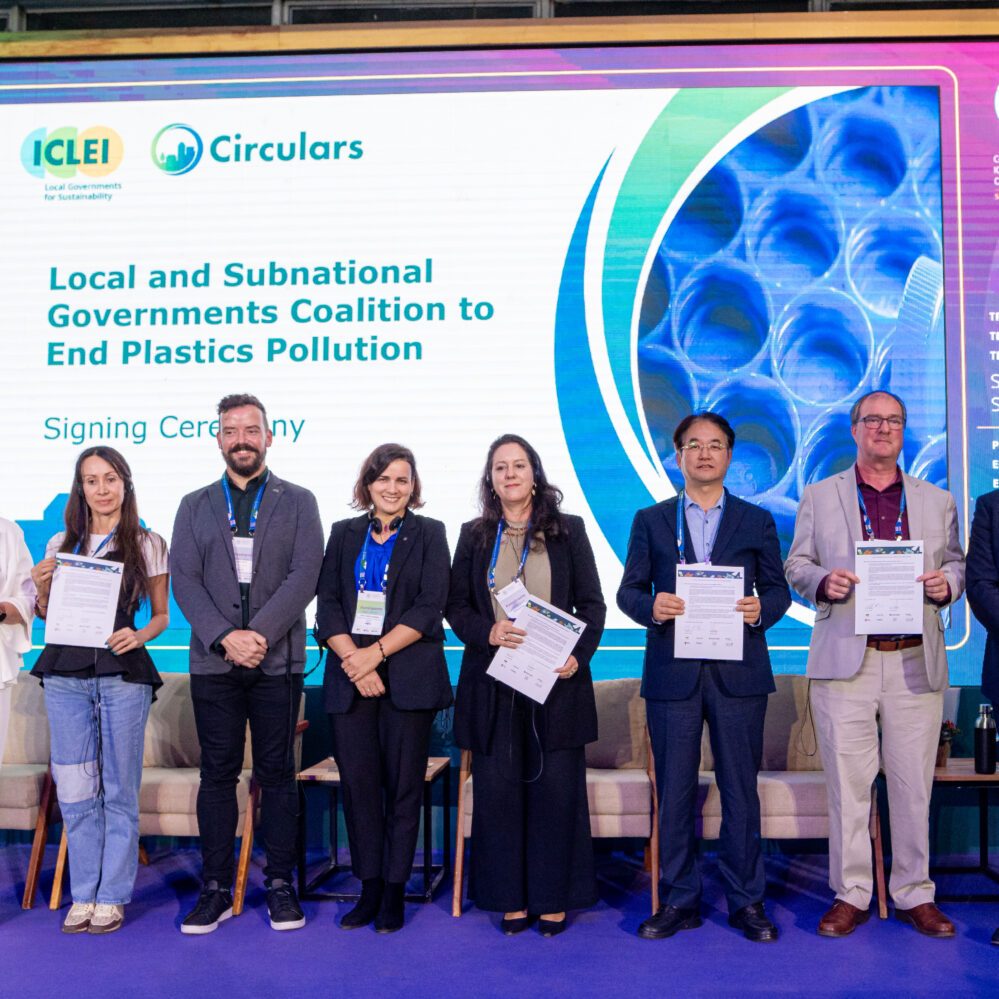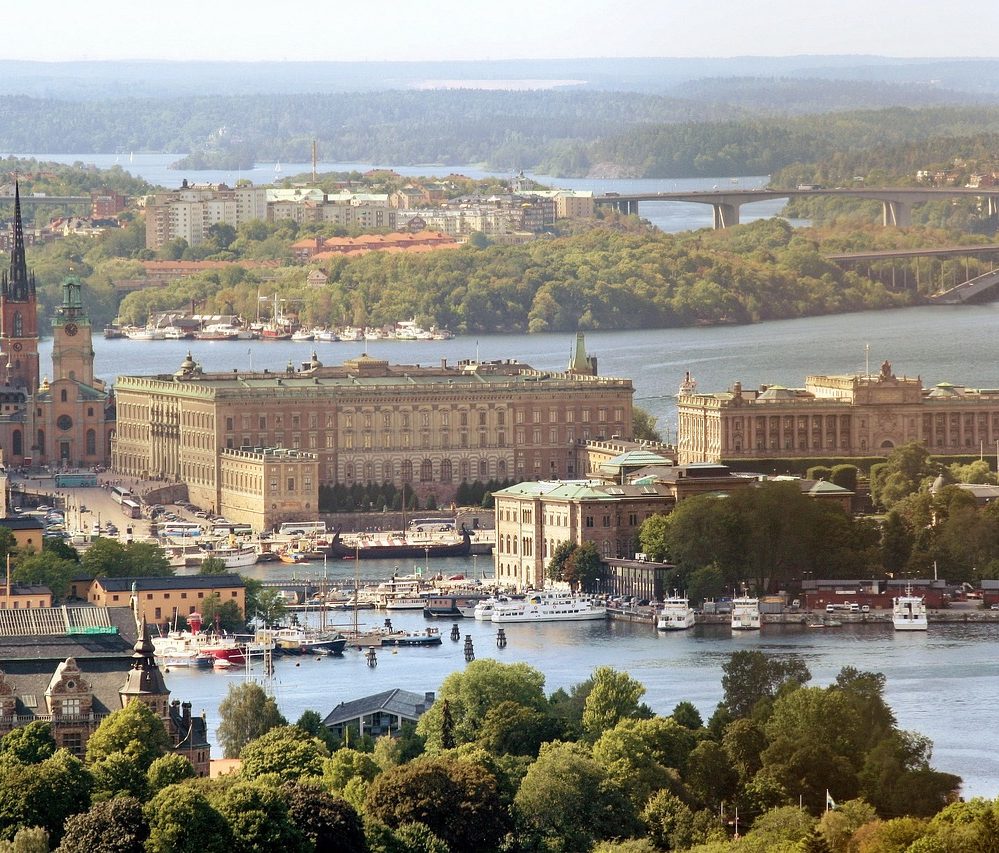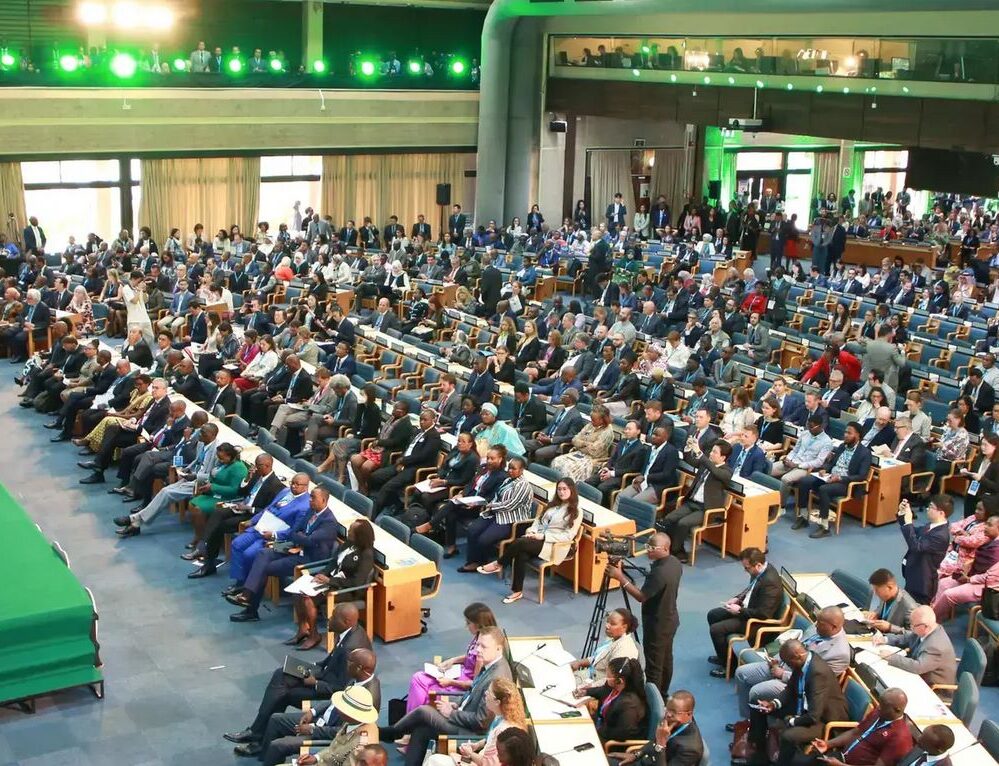As the world approaches what could be another major breakthrough in global environmental governance, the likely final phase of negotiations for a legally binding international plastics treaty is almost underway. The second part of the resumed fifth session of the Intergovernmental Negotiating Committee (INC-5.2), taking place in August 2025 in Geneva, Switzerland, could deliver what many feared was out of reach: An actual agreement.
If successful, this would be a milestone achievement, particularly against the backdrop of a tense geopolitical climate. Recent international agreements have taken much longer to reach consensus, yet the plastic treaty may conclude in just over two years of talks, after the first negotiation (INC-1) kicked off in December 2022 in Uruguay. Still, much will depend on the ambition of the final text and how inclusive it is of the voices driving implementation on the ground.
Where we are now
Local and subnational governments have made it clear throughout the negotiation process that they are ready to support national governments, and act. Representing hundreds of millions of people, cities and regions are the frontline responders to the plastic crisis. They design and operate waste systems, oversee land use and urban planning, run schools and public institutions, and manage public procurement. Yet their role remains only partially reflected in the current draft treaty text.
Encouragingly, two key provisions in the draft do acknowledge this role. Article 8 on waste management highlights the critical importance of action at the subnational level, while Article 12 on capacity building explicitly identifies local and subnational governments as key implementation partners. These articles provide a foundational recognition of where the mandate to act truly sits.
“From a value chain perspective, these clauses make sense,” explains Dr. Magash Naidoo, Head of ICLEI Circular Development. “Waste management is already a core function of local and regional governments. If we want this treaty to work, we must start where implementation actually happens, but to really accelerate implementation local and subnational governments also need to be included in the financial provisions.”
What needs to be done
Still, several critical enablers remain missing or underdeveloped in the treaty draft. These include clear references to guiding principles, provisions for addressing existing plastic pollution, financial mechanisms, national planning, and public access to information. Without these, local authorities will be expected to deliver on goals they are neither resourced for nor formally empowered to lead.
ICLEI – Local Governments for Sustainability, as part of the Local and Subnational Governments Coalition to End Plastic Pollution, along with the Governments of Quebec and Catalonia, United Cities and Local Governments (UCLG), Global Cities Hub, and others, continue to advocate for stronger language in these areas. The Coalition is calling for local voices to be considered not only as implementers but also as partners in shaping, financing, and sustaining effective long-term action.
At INC-5.2, much attention is focused on whether the process will stay open to stakeholders. During the previous session in Busan, stakeholder participation was curtailed midway through the week, a move that limited transparency and raised concerns about inclusiveness. ICLEI and its partners are urging negotiators not to repeat this approach.
“To reach an ambitious agreement, we need everyone at the table,” said Dr. Naidoo. “Local and subnational governments are not just asking for recognition; they are offering solutions, leadership, and capacity. We cannot afford to be locked out.”
The road that brought us to INC-5.2
The road to INC-5.2 has been shaped by competing visions. Some Member States support a responsible full-lifecycle approach to plastic pollution, tackling issues from production to disposal. Others emphasize end-of-pipe solutions, focusing narrowly on waste. Finding common ground will be essential.
It’s also important to recognize that eliminating all plastics is not realistic. Plastics play a vital role in sectors such as healthcare and transport. The treaty must start with the most harmful single-use plastics, while creating pathways for scalable, reusable solutions that do not increase the burden on local governments.
ICLEI has praised the efforts of the INC Chair, Bureau and Secretariat for navigating this difficult process and for maintaining momentum in the face of diverging interests. With the Chair’s text now serving as the basis for final negotiations, there is hope that a deal is within reach.
Whatever the outcome, one thing is clear: Local and subnational governments will be at the heart of implementation. To succeed, the plastics treaty must empower them with the resources, recognition, and legal space to lead.
As we approach what may be the final phase of negotiations, the call to action for all local and subnational governments around the world is clear: Become a supporter and signatory to the Local and Subnational Governments Coalition to End Plastics Pollution. To deep dive into the upcoming negotiations, join the Coalition’s webinar on 15 July at 09:00 or 17:00 CEST.





